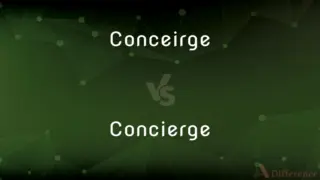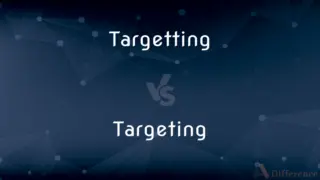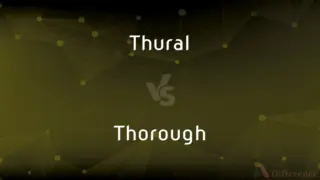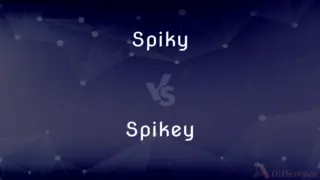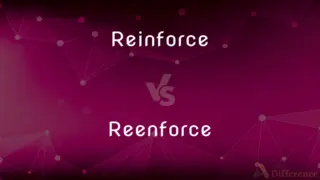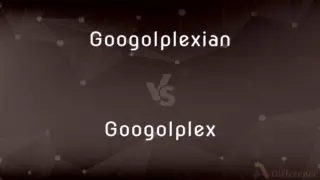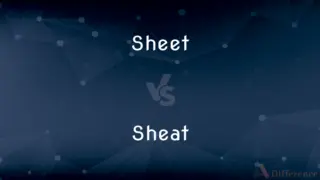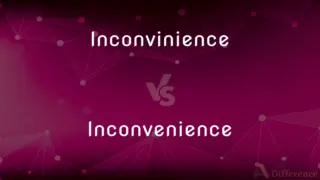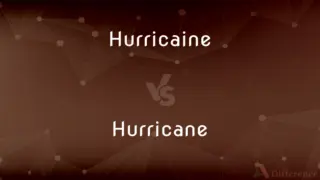Striked vs. Struck — Which is Correct Spelling?
Edited by Tayyaba Rehman — By Fiza Rafique — Updated on March 19, 2024
"Striked" is an incorrect spelling; use "Struck," the past tense and past participle of the verb "Strike," meaning to hit forcibly and deliberately.
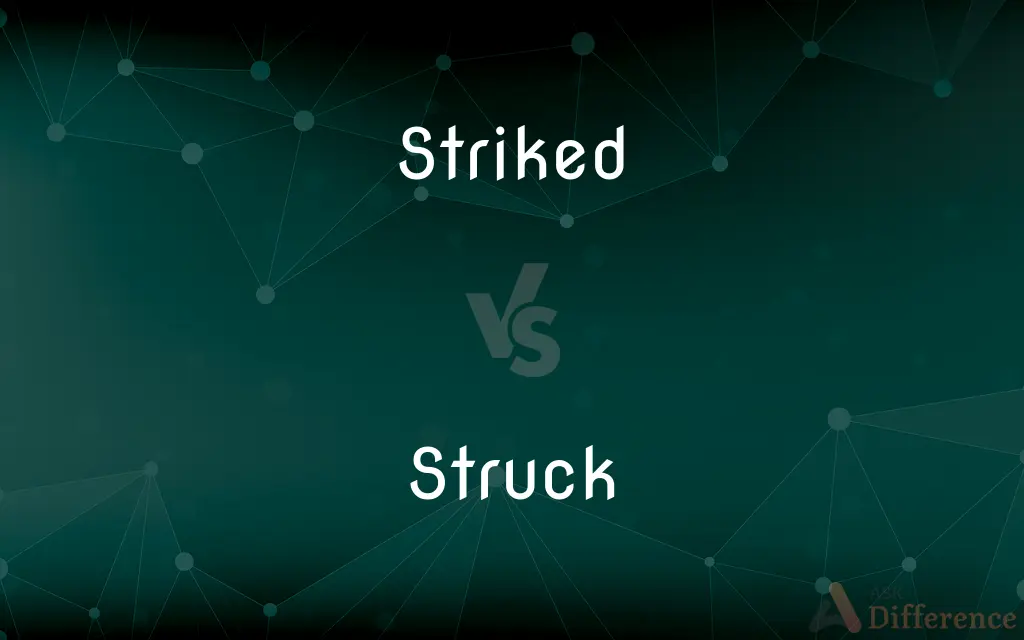
Table of Contents
Which is correct: Striked or Struck
How to spell Struck?

Striked
Incorrect Spelling

Struck
Correct Spelling
ADVERTISEMENT
Key Differences
Visualize a lightning strike and recall that we say "lightning struck," not “striked.”
Practice by creating sentences and have them checked by grammar checking tools or peers until you are comfortable.
Try rhyming: “The clock struck twelve, not ‘striked’ twelve.”
Consider connecting “Struck” with similar irregular verbs like "Stuck" or “Snuck” to remember its pattern.
Incorporate it into frequent speech or writing until it becomes second nature.
ADVERTISEMENT
How Do You Spell Struck Correctly?
Incorrect: The player striked the ball with such force it flew over the fence.
Correct: The player struck the ball with such force it flew over the fence.
Incorrect: She striked a pose in front of the mirror, admiring her outfit.
Correct: She struck a pose in front of the mirror, admiring her outfit.
Incorrect: The clock striked twelve, and everyone cheered for the New Year.
Correct: The clock struck twelve, and everyone cheered for the New Year.
Incorrect: The idea striked him suddenly while he was walking home.
Correct: The idea struck him suddenly while he was walking home.
Incorrect: He striked out at the last moment when it was his turn to speak.
Correct: He struck out at the last moment when it was his turn to speak.
Struck Definitions
Struck refers to being hit by lightning.
The tree was struck by lightning.
Struck denotes a past action where someone or something was hit.
He struck the bell.
Struck can also mean unexpectedly finding something.
She struck gold.
Struck implies being impressed or affected by something.
He was struck by her beauty.
Struck is a surname. Notable people with the surname include: Adolf Struck (1877–1911), German author Hermann Struck (1876–1944), German artist Karin Struck (1947–2006), German author Paul Struck (1776-1820), German composer Peter Struck (1943–2012), German politician (SPD) Peter Struck (classicist), professor at the University of Pennsylvania.
Past tense and a past participle of strike.
Affected or shut down by a labor strike.
Simple past tense and past participle of strike
(used in combination) affected by something overwhelming;
Conscience-smitten
Awe-struck
Struck can mean causing a state or condition.
The news struck fear in them.
Struck Meaning in a Sentence
She struck the match to light the candle.
The lightning struck the tree, splitting it in two.
The clock struck one, signaling the start of lunch.
The hammer struck the nail, driving it into the wood.
The idea to start a business struck her one evening.
The judge struck the objection, allowing the testimony.
He was struck by her beauty the moment he saw her.
His words struck a chord with everyone in the room.
The artist struck the canvas with broad, colorful strokes.
They struck gold while digging in their backyard.
The pianist struck the keys with passion and energy.
The car struck a pothole, causing a flat tire.
She struck a deal with the vendor, getting a good price.
The boxer struck his opponent with a powerful right hook.
Lightning struck the antenna, causing the power outage.
The chef struck off the burnt parts before serving the dish.
The virus struck the town, making many people sick.
They struck a balance between work and play.
The news struck him harder than he expected.
The bell struck, marking the end of the session.
The bird struck the window, startled by its own reflection.
He struck up a conversation with the stranger next to him.
He struck out on his own after years of working for others.
The ship struck a rock and began to leak.
The sound of the gavel struck silence into the courtroom.
Struck Idioms & Phrases
Struck a deal
To come to an agreement on something, especially after negotiation.
After hours of negotiation, they finally struck a deal.
Struck gold
To find or discover something valuable or successful.
When she published her first novel, it was like she had struck gold.
Struck a balance
To find a compromise or harmonious balance between two conflicting things or aspects.
She struck a balance between work and leisure, ensuring she had time for both.
Struck out
To fail at something; also, in baseball, to be called out for missing three pitches.
He struck out on his first two business ventures but succeeded on the third.
Struck a chord
To create an emotional response or resonate with someone.
His speech about perseverance struck a chord with many in the audience.
Common Curiosities
What is the verb form of Struck?
Past tense and past participle of "Strike."
Which vowel is used before Struck?
Depends on the context, e.g., "A lightning bolt struck."
What is the plural form of Struck?
Struck serves for both singular and plural.
Which conjunction is used with Struck?
No specific conjunction; it depends on sentence structure.
Which preposition is used with Struck?
"By" is common, as in "struck by lightning."
Why is it called Struck?
It's called "Struck" as it is the past tense and past participle of the verb "Strike."
What is the pronunciation of Struck?
/strʌk/
What is the root word of Struck?
Strike.
Is Struck a noun or adjective?
Verb.
Is Struck an abstract noun?
No.
Which article is used with Struck?
Can be "a," "an," or "the," depending on the context.
Is Struck a vowel or consonant?
It is a word, not a single letter.
Is Struck a countable noun?
No, it’s a verb.
Is Struck a collective noun?
No.
Is the word Struck is Gerund?
No, “striking” is the gerund form.
What is a stressed syllable in Struck?
It has one syllable, so it’s stressed.
What is the opposite of Struck?
Missed, depending on the context.
What is the first form of Struck?
Strike.
What is the singular form of Struck?
Struck is not differentiated in singular or plural.
Is Struck a negative or positive word?
Neutral; context defines its connotation.
Is the Struck term a metaphor?
It can be used metaphorically, e.g., "struck by inspiration."
Is the word “Struck” a Direct object or an Indirect object?
Neither; it’s a verb.
What is another term for Struck?
Hit.
What part of speech is Struck?
Verb.
What is the third form of Struck?
Struck.
Is Struck an adverb?
No.
Which determiner is used with Struck?
No specific determiner is directly associated.
What is the second form of Struck?
Struck.
Is the word Struck is imperative?
No.
How many syllables are in Struck?
One.
How is Struck used in a sentence?
"The car struck the tree."
Share Your Discovery
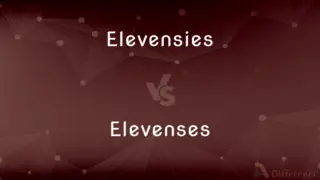
Previous Comparison
Elevensies vs. Elevenses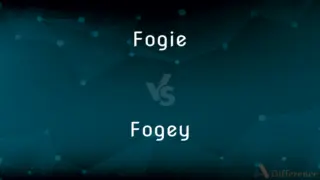
Next Comparison
Fogie vs. FogeyAuthor Spotlight
Written by
Fiza RafiqueFiza Rafique is a skilled content writer at AskDifference.com, where she meticulously refines and enhances written pieces. Drawing from her vast editorial expertise, Fiza ensures clarity, accuracy, and precision in every article. Passionate about language, she continually seeks to elevate the quality of content for readers worldwide.
Edited by
Tayyaba RehmanTayyaba Rehman is a distinguished writer, currently serving as a primary contributor to askdifference.com. As a researcher in semantics and etymology, Tayyaba's passion for the complexity of languages and their distinctions has found a perfect home on the platform. Tayyaba delves into the intricacies of language, distinguishing between commonly confused words and phrases, thereby providing clarity for readers worldwide.


